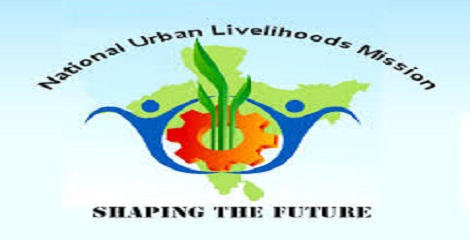National Urban Livelihood Mission (NULM) which is now renamed as “Deen Dayal Antyodaya Yojana-NULM” and in Hindi as “Deen Dayal Antyodaya Yojana- Rashtriya Shahri Aajeevika Mission” has been enlarged to the 4,041 statutory urban local bodies by government.
- Tamil Nadu is having the highest number of towns (681) to be covered under DAY-NULM.
- Currently, only 40 cities are implementing this pro-poor scheme.
 In all, DAY-NULM will benefit urban poor in 1,505 new towns in the North, 991 towns in the South, 375 in the West, 249 in the East and 130 more towns in the North-East.
In all, DAY-NULM will benefit urban poor in 1,505 new towns in the North, 991 towns in the South, 375 in the West, 249 in the East and 130 more towns in the North-East.
Components of DAY-NULM:
- Employment through Skill Training and Placement – An expenditure of Rs. 15, 000 per person is allowed on training of urban poor which is Rs. 18, 000 in North-East and J&K.
- Social Mobilisation and Institution Development – It will be done through formation of Self-Help Groups for training members and hand holding, an initial support of 10, 000 is given for each group. Assistance of Rs. 50, 000 is provided to Registered Area Level Federations.
- Subsidy to urban poor – An interest subsidy of 5% – 7% for setting up individual micro-enterprises with a loan of up to 2 lakh and for group enterprises with a loan limit of up to Rs. 10 lakhs.
- Shelters for urban homeless – Cost of construction of shelters for urban homeless is fully funded under the Scheme with each such shelter accommodating at least 50 homeless.
- Other means – Urban poor will be helped through setting up infrastructure for street vendors and innovative and special projects for rag pickers, differently abled etc.
About NULM
Established in 2013, it is being presently implemented in only 791 cities across the country covering all district headquarters and cities and towns with a population of above one lakh each.
- The mission is looking to intensify employment opportunities and incomes of the urban poor through skill development and training.
AffairsCloud Recommends Oliveboard Mock Test
AffairsCloud Ebook - Support Us to Grow
Govt Jobs by Category
Bank Jobs Notification

